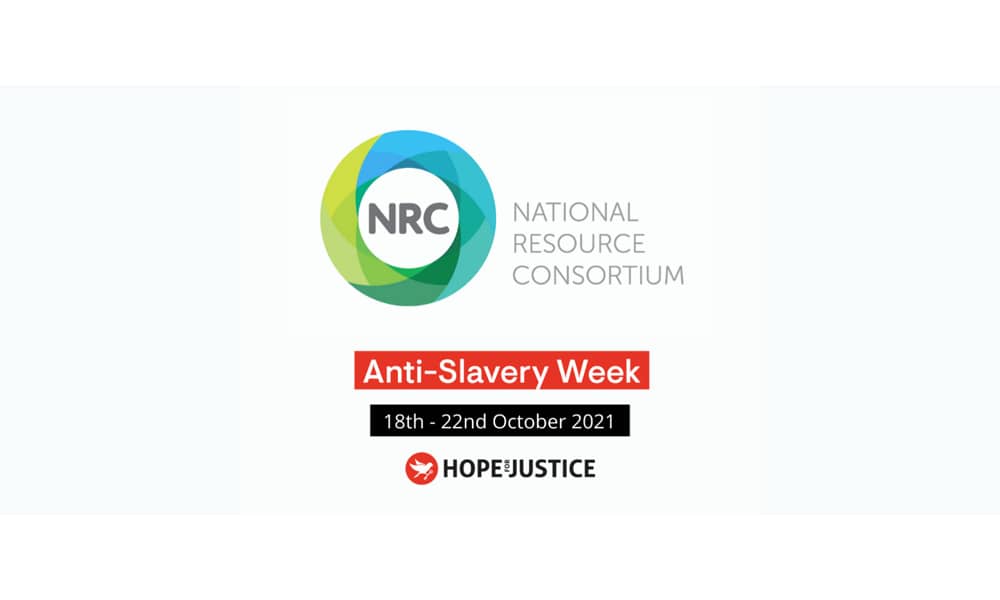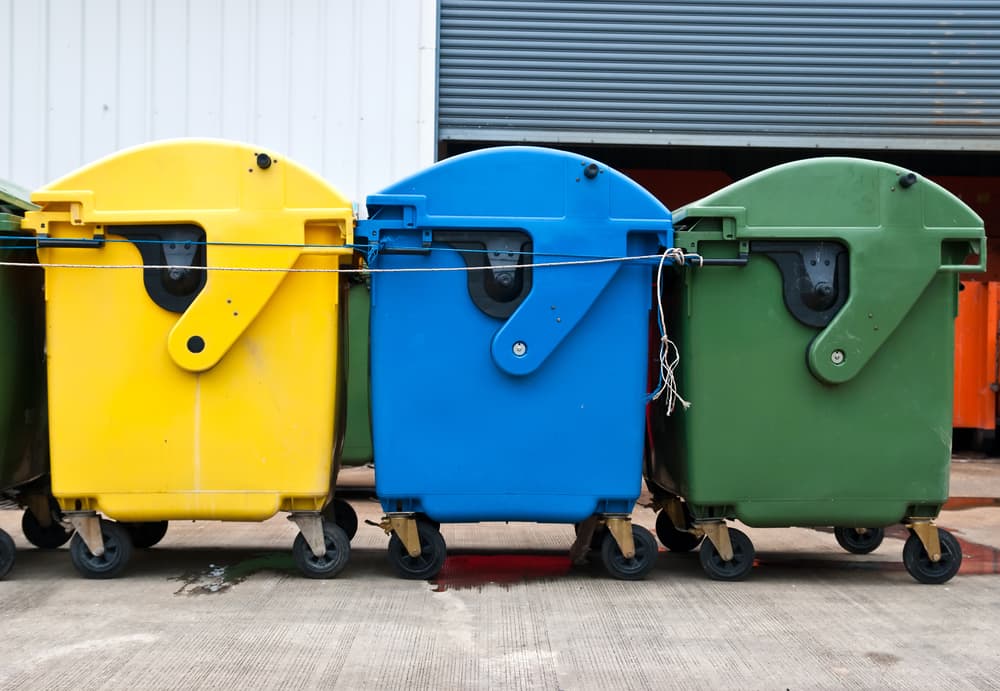May 9th, 2024

Supporting Anti-Slavery Week
Last week, NRC was proud to support Anti-Slavery Week (18th – 22nd October 2021), an awareness campaign run by the charity Hope for Justice. In doing so, we helped raise awareness of incidences of modern-day slavery occurring within the waste and recycling sector among some of the UK’s leading independent waste and recycling management businesses that we work with.
Understanding Modern-Day Slavery
Modern-day slavery is an umbrella term for acts of slavery, servitude, forced or compulsory labour, as well as human trafficking. It’s a barbaric practice that is still happening all around us; on normal-looking streets, and within the waste and recycling management sector. Victims can be hidden in plain sight, and those in lower-paid, temporary positions are at the highest risk, including low-skilled employees who work in roles such as picking line operatives.
The Scope of the Issue
Having supported Hope for Justice’s campaigns in 2020 and years prior, we were pleased to learn that the charity reached 192,667 people last year, which included rescuing or providing aftercare for 4,844 children and adults. For more information about how NRC supported the campaign, read our blog here.
But what’s worrying is that figures from 2021 show there are 40.3 million people still trapped in slavery worldwide (Hope for Justice) and at least 100,000 victims are estimated to be in the UK (Centre for Social Justice). Now that Anti-Slavery Week 2021 has come to an end, we know that campaigning against slavery for one week just isn’t enough; we must work towards ending modern-day slavery every day, all year round.
Challenges Amidst the Pandemic
This past year in particular has presented more new challenges for our sector all at once; many of which could have a devastating impact on increasing incidences of modern-day slavery. In a year where uncertainties arising from the pandemic have put people and businesses even more at risk, it’s now more important than ever to protect vulnerable employees and employers from modern-day slavery.
Vulnerabilities and Economic Pressures
Naturally, modern-day slavery affects those at the lower end of the economic hierarchy. With recent changes to benefits, increased domestic energy costs, increased cost of food, and the winter season fast approaching, those who live and work in lower-paid positions may not have many other options than to accept unsafe working offers.
Challenges Faced by Waste Operators
At the same time, waste operators are also experiencing their own set of challenges. Recovery from the biggest economic challenge in a generation, a shortage of workforce, increased volumes of waste, increased costs for energy, fuel, wages, and inflation, alongside the need to operate compliantly, are just some of the challenges that have placed a significant strain on businesses and could facilitate the growth of modern slavery further.
Remaining Vigilant
As we navigate a time where thousands of people are desperate for work at any pay, and many companies are desperate for workers at the lowest cost, we need to recognise how these circumstances could provide the perfect storm for modern-day slavery. Throughout Anti-Slavery Week 2021 and beyond, it’s vital all stakeholders remain vigilant to guard against these horrendous practices.
NRC’s Initiatives and Efforts
At NRC, we do our best to ensure our members and partners are well aware of the modern slavery issue and have robust processes in place to protect their businesses and employees. Last year, for example, we introduced a new Modern Slavery and Anti-Trafficking Policy which has become a part of our key compliance checks that we track in all our members and partners. We also became members of the Slave-Free Alliance.
As Consortium Director of NRC, the experiences and discussions I’ve had with our members on this subject this year make me feel confident that they have the partners and processes to guard against the risk. The fact that they know their suppliers intimately also helps this process.
Yet, with new challenges arriving daily which could be putting immense strain on businesses, we must continue to have these conversations and carry out robust checks. If the criminals leading modern-day slavery groups can infiltrate the largest organisations, we can’t afford to be negligent. Learn more about how to spot the signs of modern-day slavery from Hope for Justice here.
Continuing the Fight Against Modern Slavery
We look forward to working with Hope for Justice and Slave-Free Alliance to combat the spread and severity of modern slavery throughout 2021 and beyond – not just during Anti-Slavery Week. For more information about what you can do to help, visit hopeforjustice.org.
For more information about NRC’s services and expertise, contact NRC at [email protected] or 0845 299 6292.





